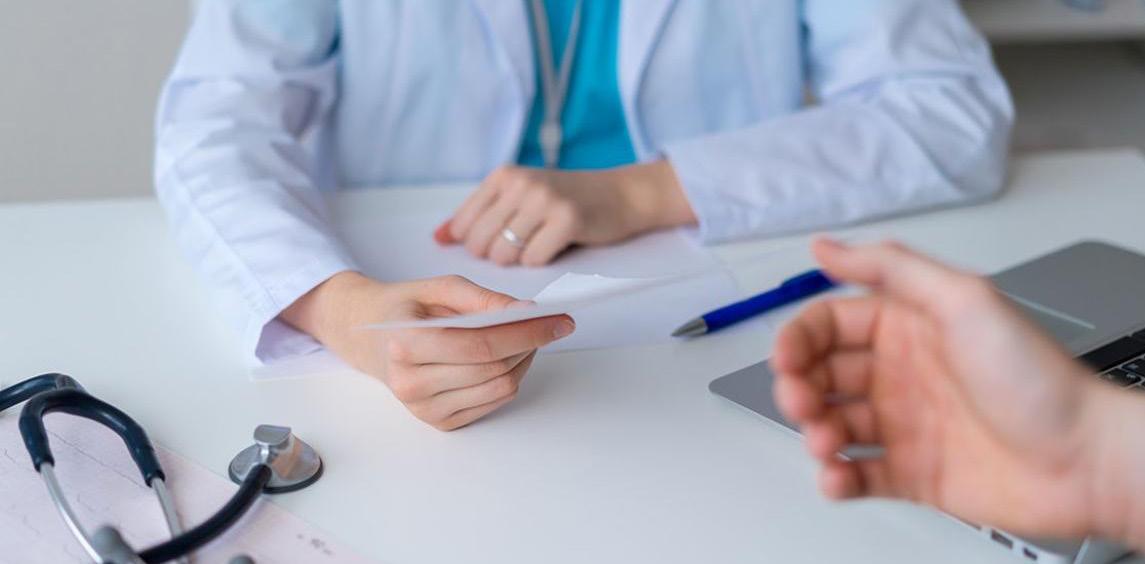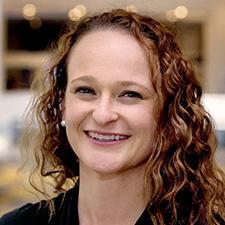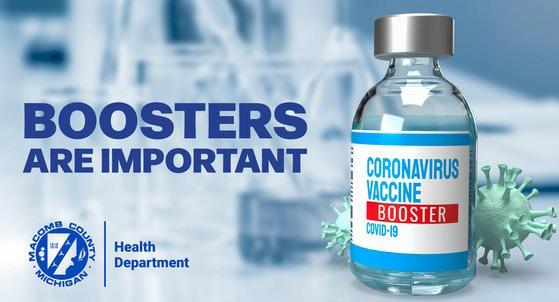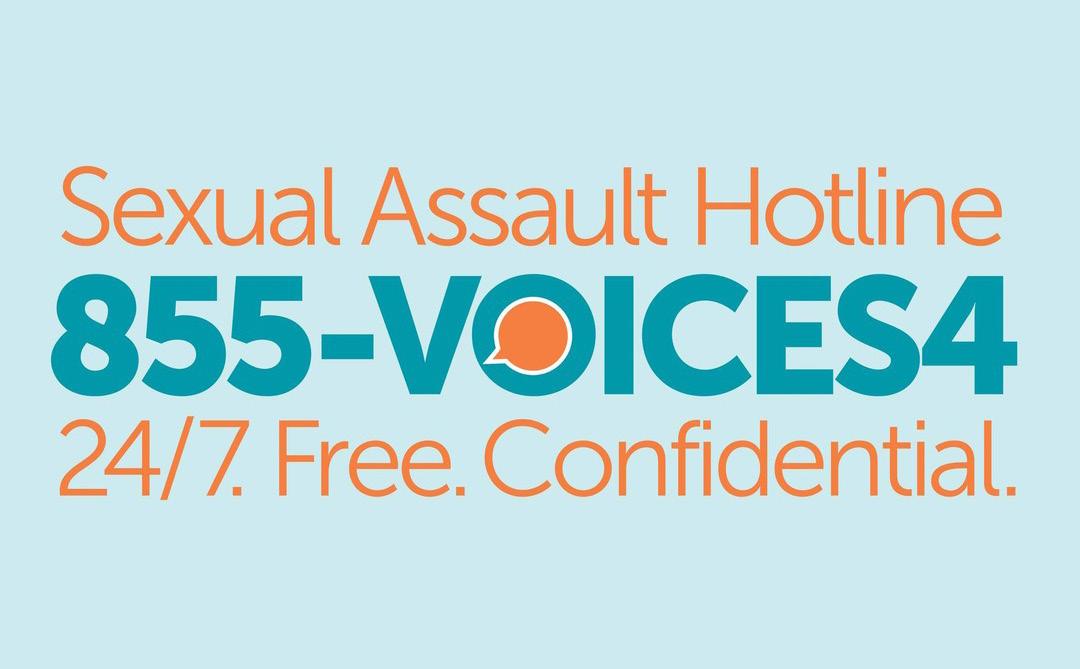
11 minute read
When Must a Data Breach be Reported?
By: Daniel J. Schulte, J.D., MSMS Legal Counsel
My practice billing person recently missed some time due to an illness. She was a few weeks behind in processing claims. She took home a thumb drive loaded with patient records so that she could work on getting caught up over a weekend without having to come into the office. The thumb drive disappeared. She claims she last saw it in a pile of papers at home on her dining room table where she was working and fears she accidentally threw it in the trash with the pile of papers by accident. Is this a HIPAA data breach? Do I need to report this to someone?
Advertisement
The HIPAA Breach Notification Rule, 45 CFR §§ 164.400-414, requires HIPAA covered entities (i.e. your medical practice) and their business associates to provide notification following a breach of unsecured protected health information. I can only assume that the thumb drive your biller took home contained protected health information because this would certainly include the types of information necessary for her to make claims for payment. Notification of a breach is only required if the protected health information is unsecured. Were the files on the thumb drive encrypted or secured (i.e. some measure put in place to prevent an unauthorized person from accessing the information)?
If the protected health information on the thumb drive was not secured then the situation you describe is a data breach and reporting is required unless you can demonstrate that there is a low probability that the protected health information has been compromised based on your assessment of the risk taking into account at least the following: (1) the nature and extent of the protected health information involved, including the types of identifiers and the likelihood of re-identification; (2) what you know about any unauthorized person known to have used the protected health information and/or those to whom disclosure was made; (3) whether the protected health information was actually acquired or viewed by an unauthorized person; and (4) the extent to which the risk to the protected health information has been mitigated.
In your case a judgement call has to be made. There seems to be a low probability that the information has been compromised based on the fact that the thumb drive went straight to your biller’s home and appears to have been accidently thrown in the trash instead of being taken by an unauthorized person. You must document this risk assessment in writing.
If you are not comfortable concluding that there is a low probability of compromise then you must determine which type of report(s) must be made.
Individual notice is always required. Generally, all patients whose protected health information was on the thumb drive must receive written notice by first-class mail without unreasonable delay and in no case later than 60 days following the discovery of a breach including, to the extent possible, a brief description of the breach, a description of the types of information that were involved in the breach, the steps affected individuals should take to protect themselves from potential harm, a brief description of what the covered entity is doing to investigate the breach, mitigate the harm, and prevent further breaches.
If there are more than 500 affected individuals you must in addition to individual notice provide notice to prominent media outlets.
Finally, in addition to notifying affected individuals and the media (if more than 500 affected individuals) the Secretary Health and Human Services must be notified. This can be done electronically by going to the HHS web site and filling out and electronically submitting a breach report form. If a breach affects 500 or more individuals, covered entities must notify the Secretary without unreasonable delay and in no case later than 60 days following a breach. If, however, a breach affects fewer than 500 individuals, the covered entity may notify the Secretary of such breaches on an annual basis. Reports of breaches affecting fewer than 500 individuals are due to the Secretary no later than 60 days after the end of the calendar year in which the breaches are discovered. F
TO EASE PHYSICIAN BURNOUT, DITCH THE STIGMA AGAINST GETTING HELP

By: Tanya Albert Henry, Contributing AMA News Writer
There’s a growing recognition that system structures in medicine are fueling the alltime high burnout physicians are experiencing and there’s a movement afoot to make changes. But physicians’ well-being—including mental health—continues to take a toll.
While practices, health systems, insurers, licensing boards and others strive to make changes to ease burdens, the long-standing culture in medicine that makes physicians feel as if they are failing if they seek mental health care—and a fear that they could lose their license or privileges—prevents doctors from seeking the care they may desperately need.
Experts say that needs to change too.
During the “Addressing Physician Burnout” webinar led by AMA President Jack Resneck Jr., MD, U.S. Surgeon General Vivek H. Murthy, MD, and a panel of experts on physician well-being discussed how everyone plays a role in reducing the stigma surrounding mental health in medicine and ensuring colleagues know help is available when needed. The surgeon general’s office last year issued an advisory saying that it is a “moral obligation” to fight burnout among physicians and other health professionals.
Drs. Resneck and Murthy pointed to the tragedy of New York emergency medicine physician Lorna Breen, MD, who died by suicide during the early days of the COVID-19 pandemic as a sad example of why changes need to be made.

“The crisis of burnout in our profession has been brewing for a long time. It was worsened by the pandemic, but preceded the pandemic,” Dr. Murthy said. “Stories like Dr. Breen’s are just absolutely tragic reminders that we have much more work to do right by people who are stepping up and entering this profession because they want to help and are finding often that it’s too hard to do so. And it shouldn’t be that way.”
As discussed in the webinar, here is how to reduce stigma and encourage physicians to seek help.
Lead by example
Physicians and other health care leaders need to recognize that when they step up and use care—and do that publicly by talking about their stories and struggles—it helps show that it’s OK for others to do the same.
And Nigel Girgrah, MD, PhD, chief wellness officer at Ochsner Health in New Orleans, did just that. Dr. Girgrah shared an open letter with 34,000 coworkers about his own mental health struggles and subsequent help in the summer of 2020. It changed how mental health is discussed at his organization.
“I had hundreds of people reach out sharing their stories,” Dr. Girgrah said during the webinar. Some of those who contacted him said it was “a call for action to seek help”.
Share more data
Data will help people understand how widespread mental health concerns are among physicians and other health professionals.
“This is not the concern of 1% or 2%,” said Dr. Murthy. “The vast majority of clinicians at some point experience mental health struggles, whether it is depression or anxiety or challenges with managing stress or handling the loneliness and isolation that can come with our work.”
Make policy changes
Changing questions on licensing and other applications that discourage physicians from being honest about seeking help is important. AMA policy encourages state licensing boards to require that physicians only disclose current physical or mental health conditions that impact their ability to practice medicine.
“We should not be punishing people for seeking care when they need it,” said Dr. Murthy.
Talk to colleagues
Those with executive titles or leadership roles should not be the only ones talking about mental health. Individual physicians should reach out for help when they need it. They should also check in with colleagues about how they are doing.
By doing so, physicians and health professionals can come to realize, that “this is something we can talk about,” Dr. Murthy said. “It’s OK to ask for help. And it often feels good to give help too, when asked.”
A PATIENT THREATENED TO KILL THIS MD. HERE’S WHAT SHE LEARNED.
By: Len Strazewski, Contributing AMA News Writer
It’s the last place where violence should prevail. Doctors and their patients come to physician private practices seeking opportunities for healing and better health all delivered in a safe environment. And most of the time, that’s what they get.
But a growing environment of social discord and violence touches everyone—even physicians—and physicians need to be prepared to deliver safety in their offices as well as medical advice, according to AMA member Carolynn
Francavilla Brown, MD.
Dr. Francavilla Brown is a family physician and obesity specialist serving as chair-elect of the AMA Private Practice Physicians Section Governing Council for the 2022–2024 term. She owns and runs a four-physician family practice called Green Mountain Partners for Health in the Denver area. She discussed the topic of workplace safety during an education session at the 2022 AMA Interim Meeting in Honolulu.
“Workplace violence has always been at the heart of my practice,” she said, noting that several of the initial staff at the clinic had personal experiences with workplace violence prior to starting work there.
A death threat leads to lockdown
Workplace violence also has affected her and her staff personally, with Dr. Francavilla Brown getting “a death threat from a patient who had been hospitalized in psychiatric care.”
The patient, who she saw in a facility outside her office, was seeking more psychiatric care, Dr. Francavilla Brown explained, “and the way he went about getting that was to threaten” her. In response, Dr. Francavilla Brown contacted police to alert them to the situation and ask for additional patrols in the area of the facility. She also alerted staff to the threat, giving them the option of not coming to work until the threat was resolved.
Dr. Francavilla Brown also examined the security of her practice office, locking the main entrance that previously was kept open and alerting staff to a second entrance and exit that was not commonly used.
Shortly after this experience, she said the office received another threat from a patient who was unhappy with the types of medication he was prescribed. The treating physician got a restraining order and terminated care for that patient.
It is true that physicians have a responsibility to provide care to their patients, Dr. Francavilla Brown said, but that responsibility is not overriding. “Your safety is paramount,” she said.
Improving safety in your private practice
How can a small private physician practice improve their safety without the resources of a hospital system or large facility? First, acknowledge the possibility. “What would we do if there was a threat?”
Also, she recommended a review of the resources that are already present. Does the office space have a security guard? Can the doors be locked to permit access only to properly identified visitors? Does the space have security cameras, or can they be installed easily and quickly?
A private practice can also provide chaperones in some circumstances. Usually, chaperones are provided for patient safety and security, but they can also provide security for physicians, she said.
Training is also important. Not only should staff be prepared to identify intruders and call 911, if necessary, but special training could be useful. Local security services can provide active-shooter training, for example.
“The biggest thing you can do in a small practice is recognizing the needs and having a culture of safety,” she said, and alert patients and staff to boundaries that support safety. Physicians and their private practices are not obliged to treat people who are making them feel unsafe or uncomfortable.
“You are not an emergency room,” Dr. Francavilla Brown said, “so if there is someone making your job unsafe, you can terminate that relationship.” F
Protect access to physician-led care
PHYSICIANS ARE TRAINED TO LEAD
With the highest level of education and 20x the clinical training
Physicians
4 years
3–7 years
10,000–16,000 hours
Nurse practitioners
2–3 years
No residency vital hands-on instruction, but 60% of nurse practitioner programs in 2019 were mostly or completely online
X-ray ordering increased among non-physicians 441%
6.3% 1.3%
Non-physicians needed the number of biopsies to screen for skin cancer 2x of nurse practitioners prescribed opioids to over half of their patients compared to of physicians
15% Patients were more likely to receive an antibiotic from a non-physician
95% would wait longer and pay more to be treated by a physician
MYTH
Allowing non-physicians to practice without physician involvement will increase access to care in rural and underserved areas.
States with laws allowing nurse practitioners to practice without physician supervision or collaboration has not guaranteed increased access in rural and underserved areas.
All patients, regardless of ZIP code, deserve care led by a physician. ©

May 5, 2023 ~ A Day of Board of Medicine Renewal Requirements
MSMS Live Virtual Meeting, 8:30 am – 4:15 pm. The meeting will include: 1-hr Medical Ethics, 2-hr Pain Management, 3-hr Implicit Bias. 7 AMA/PRA Category 1 CME Credits. Cost $270 members, $350 non-members, $180 retirees.
May 10, 2023 ~ Surviving Litigation

MSMS Grand Rounds, FREE Live Webinar, 12 pm – 12:45 pm, .75 AMA/PRA Category 1 CME Credit.
May 10, 2023 ~ Payer Panel
MSMS Practice Management Series, FREE Live Webinar, 1 pm – 2 pm, 1 AMA/PRA Category Credit.
May 12, 2023 ~ Henry Ford Health 10th Annual Head & Neck Cancer Symposium
In-Person Meeting , 7:30 am – 3:30 pm, Orchard Lake Country Club in West Bloomfield, 6 AMA/PRA Category 1 CME Credits.
May 15, 2023 ~ Tri-County Legislative Committee Meeting
In-Person Meeting, 6 pm, in Southfield. Physicians from Macomb, Oakland and Wayne counties will meet with local legislators from the tri-county area. Anyone interested in attending the meeting contact Heidi Leach at HLeach@macombcms.org or call 810-712-2546.
May 19, 2023 ~ Henry Ford Health 2nd Annual Cancer Gastrointestinal and Neuroendocrine Multidisciplinary Symposium
In-Person Meeting, 7:30am – 3:30 pm, The Henry in Dearborn, 6 AMA/PRA Category 1 CME Credits.
May 22, 2023 ~ Neurology Update 2023
MSMS Scientific Meeting, Live Virtual, 6 pm – 8 pm, 2 AMA/ PRA Category 1 CME Credits. Cost: $50 members/retirees, $75 non-members, free for student/resident members.
May 24, 2023 ~ Reducing Unconscious Bias – an Imperative (RUBI)
MSMS Implicit Bias Training Series, Live Webinar, 8 am – 9 am, you will also be registered for a 1 hour on-demand webinar to view anytime, 2 AMA/PRA Category 1 CME Credit. Cost: $100 members, $150 non-members, free for student/resident members.
June 12, 2023 ~ Implicit Bias Training
MSMS Monday Night Medicine Series, Live Webinar, 5:30 pm –8:30 pm, 3 AMA/PRA Category 1 CME Credit. Cost: $140 members, $190 non-members, free for student/resident members.
June 14, 2023 ~ Advanced Minimally Invasive Treatments for Back Pain
MSMS Grand Rounds, FREE Live Webinar, 12 pm – 12:45 pm, .75 AMA/PRA Category 1 CME Credit.
June 14, 2023 ~ Correct Submission of Chronic Care Management and Depression Screening
MSMS Practice Management Series, FREE Live Webinar, 1 pm – 2 pm, 1 AMA/PRA Category Credit.
June 21, 2023 ~ Reducing Unconscious Bias – an Imperative (RUBI)
MSMS Implicit Bias Training Series, Live Webinar, 12 pm – 1 pm, you will also be registered for a 1 hour on-demand webinar to view anytime, 2 AMA/PRA Category 1 CME Credit. Cost: $100 members, $150 non-members, free for student/resident members.
June 26, 2023 ~ Lifestyle Medicine: Patients, Pillars, Practice
MSMS Scientific Meeting, Live Virtual, 6 pm – 8 pm, 2 AMA/ PRA Category 1 CME Credits. Cost: $50 members/retirees, $75 non-members, free for student/resident members.
July 12, 2023 ~ MSMS Quarterly Membership Update
Live Virtual Meeting at 7 pm. Tom George, MD, MSMS Interim CEO will be hosting an update on MSMS activities and taking questions from members. The presentation is free, but registration is required.
July 19, 2023 ~ Reducing Unconscious Bias – an Imperative (RUBI)
MSMS Implicit Bias Training Series, Live Webinar, 12 pm – 1 pm, you will also be registered for a 1 hour on-demand webinar to view anytime, 2 AMA/PRA Category 1 CME Credit. Cost: $100 members, $150 non-members, free for student/resident members.
August 28, 2023 ~ Updates in Endocrinology
MSMS Scientific Meeting, Live Virtual, 6 pm – 8 pm, 2 AMA/ PRA Category 1 CME Credits. Cost: $50 members/retirees, $75 non-members, free for student/resident members.
September 18, 2023 ~ Tri-County Legislative Committee Meeting
In-Person Meeting, 6 pm, location to be announced. Physicians from Macomb, Oakland and Wayne counties will meet with local legislators from the tri-county area. Anyone interested in attending the meeting contact Heidi Leach at HLeach@macombcms.org or call 810-712-2546.






